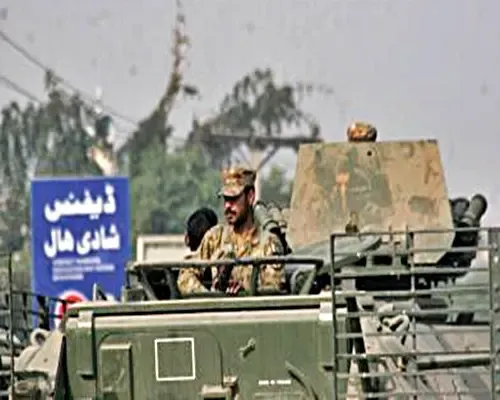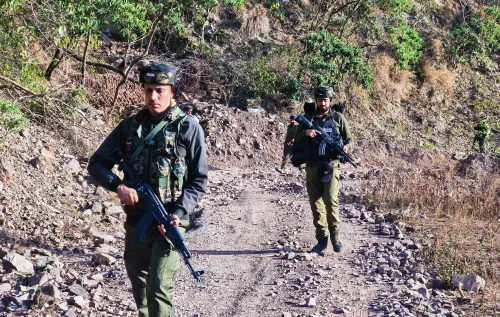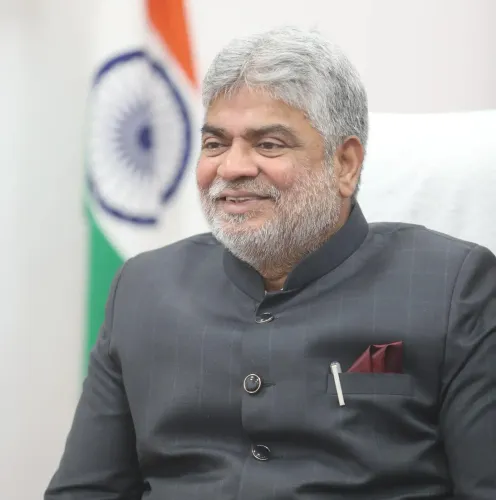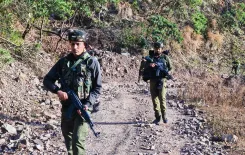Is Pakistan Facing a Critical Artillery Shortage That Limits War Sustainment to Just Four Days?

Synopsis
Key Takeaways
- Pakistan's military can sustain combat for only four days.
- Artillery ammunition shortages are due to arms exports.
- Economic challenges are exacerbating military readiness issues.
- Emergency measures have been initiated, but their success is uncertain.
- Pakistan's defense capabilities are critically compromised.
New Delhi, May 3 (NationPress) The military preparedness of Pakistan is under intense examination, as intelligence reports indicate that the nation can only maintain high-intensity combat for a maximum of four days.
This concerning evaluation arises from a significant deficiency in artillery ammunition, largely due to Pakistan's arms exports to Ukraine and Israel.
Sources report that while financially beneficial, Pakistan's choice to fulfill international arms demands has severely diminished its combat capabilities. The export of crucial munitions has left essential weapon systems lacking sufficient ammunition, making them vulnerable in the event of a large-scale conflict.
Confidential sources informed IANS that amidst global conflicts, Pakistan's military has been carefully maneuvering through challenging circumstances, weighing economic hardship against strategic necessity. The country's decision to export vast amounts of ammunition to Ukraine and Israel has not only strained its diplomatic stance but also critically compromised its own military readiness.
The crisis can be traced back to 2022 when the Russia-Ukraine war triggered a worldwide surge in demand for munitions. In light of a deteriorating economic situation characterized by debt and food insecurity, Pakistan seized this opportunity. The Pakistan Ordnance Factories (POF) in Wah Cantt became a clandestine supplier to Ukraine, exporting substantial quantities of artillery shells, rockets, and small arms ammunition.
In just the period between February and March 2023, Pakistan reportedly exported 42,000 122mm BM-21 rockets, 60,000 155mm howitzer shells, and an additional 130,000 122mm rockets, generating 364 million dollars. Allegedly, around 80 percent of these funds were redirected to the Army's General Headquarters in Rawalpindi.
By the fiscal year 2022-23, Pakistan's arms exports soared to 415 million dollars, marking an astonishing 3,000 percent increase from the previous year's 13 million dollars. However, this financial gain came at a dire cost, leading to a rapid reduction of domestic stockpiles vital for maintaining its 600,000-strong military.
Crucial platforms like the M109 howitzers and BM-21 rocket systems are now inadequately equipped, as their primary munitions have been redirected. The new SH-15 Mounted Gun Systems (MGS), acquired with the expectation of local ammunition production, are now rendered inactive due to the POF's diverted production lines.
Without ammunition, these systems serve merely as showpieces, a senior intelligence official stated to IANS. This holds particularly true for the SH-15, which was recently displayed during a military deception exercise, but lacks combat-ready ammunition.
The operational implications are grave. Analysts estimate that Pakistan's reserves can now support only 96 hours — or four days — of intense warfare. This strategic imbalance is further exacerbated by India's escalating defense capabilities, with New Delhi's arms imports increasing by 61 percent between 2015-2019 and 2020-2024.
At the same time, Pakistan's economic challenges have intensified. With rampant inflation, dwindling foreign exchange reserves, and increasing debt, the military has been forced to limit rations, halt training exercises, and cancel war games due to fuel shortages.
Former Army Chief Gen Qamar Javed Bajwa acknowledged that Pakistan lacks the necessary ammunition and economic means to engage in a prolonged conflict with India.
The depletion of military reserves has raised significant alarms among Pakistan's military leadership. Intelligence reports indicate that this issue was a critical topic during the Special Corps Commanders Conference held on May 2, 2025. Although emergency ammunition depots have been set up near the India-Pakistan border, their effectiveness remains questionable under the current circumstances.
The irony is striking: while Pakistan's military elite has profited from arms exports, the nation's ability to wage or deter conventional warfare — particularly against India — has been severely undermined. Four days of combat readiness is not merely a statistic; it signifies a profound vulnerability for a country that has historically prided itself on military resilience.










